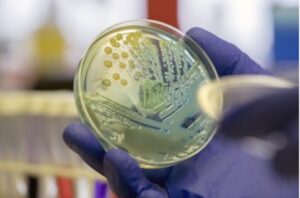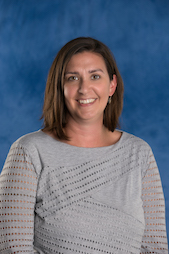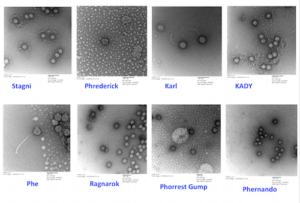Students think that research is if you don’t get it right then you’re doing it wrong and that’s absolutely not it. Actually, you have to fail a lot before you get it right. So it’s really about learning how to problem solve and figure out what went wrong so it doesn’t go wrong next time.
Pre-Health Advisor interviewed University of Detroit Mercy Biology Department Chair and Professor Dr. Stephanie Conant to discuss her research and research opportunity for freshman Titans! In addition to being Department Chair, Professor and Advisor, Dr. Conant is also an Immunologist, with an extensive research background in how the immune system works!
1. Dr. Conant, you wear a lot of hats here at the University of Detroit Mercy, Professor, Department Chair, Academic Advisor to name a few. However, today I want to ask you about your role as a researcher. Perhaps you could share with our undergraduate Titans what you do in this research lab.
I did really focus on cells of humans and how they react in an immunological way. How do they react to a threat of an infection? What kind of proteins do they make and when do they make those? What kinds of stimulus do they need in order to trigger that?…I’ve migrated into cell regulation fields now, and collaborate with Dr. Kagey in the department to look more at cancer cell regulation…What happens in cancer cells that triggers them to multiply and divide uncontrollably, which is what happens during a tumor
.
So the focus of my research lab, outside of the classroom is looking at those cell cycle regulators. What proteins are involved in making sure cells quit dividing when they’re suppose to and even die when they’re supposed to…instead of taking off and crowding out other cells or generating cancers, tumors, so we’re looking at some of the proteins involved in that.
2. You not only work with undergraduate student researchers but you have a program specifically for freshmen. Please share.
We give research experiences in the classroom so that students can learn how to do laboratory techniques, how they can do experiments, how they collect data, and really learn about what we call the research frame of mind which is fail, try again…They learn to be a critical thinker, analyze data, figure out how it fits into the bigger scheme of things and be part of something bigger than just UDM.
It’s a program that’s sponsored by Howard Hughes Medical Institute or HHMI, it’s called SEA Phages which the SEA stands for Science Education Alliance, Phages stands for…phage hunters and genomics; it’s looking at identifying new bacteriophage which are viruses that infect bacteria…looking at their specific genetics, we annotate their genomes.
The coolest thing (I think) about being in a freshman lab when we get to do a research experience like this is no experience is needed…We will teach you everything you need to know to go through this program, to do these experiments and to do this research project.
You come out of it with isolating your own phage that you brought in from a soil sample…You get to name it, upload it to a central database that is a consortium of over 120 different schools around the world… you really get to learn something that you have discovered and have contributed to a bigger story.
3. How should interested students inquire about this potential research opportunity?
The space in the lab is somewhat limited but I have emailed every incoming freshmen and said, if you’re interested in this experience, please let me know…you can also go on the UDM website and search SEA PHAGE, it’ll take you right to the SEA Phage HHMI page for UDM.
Learn more about the SEA-PHAGES Courses Dr. Stephanie Conant teach here!
Learn more about Dr. Conant’s Research and Teaching Experience Here!



